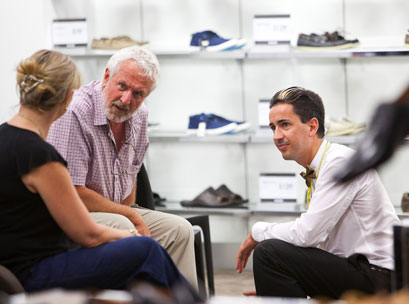 While many brands shift focus to target ‘Millennials’ with digital touchpoints and personalised communications, Australia’s most affluent generation, ‘Baby Boomers’, simply want brands to stand by their products, according to new research from ICLP.
While many brands shift focus to target ‘Millennials’ with digital touchpoints and personalised communications, Australia’s most affluent generation, ‘Baby Boomers’, simply want brands to stand by their products, according to new research from ICLP.
Measuring the sentiment of over 750 Australians across key metrics like ‘trust’, ‘recognition’ and ‘reliability’, global customer loyalty agency, ICLP, said ‘Boomers’ have more simple desires when it comes to brand relationships, when compared to Generation X and Millennials.
“While the market is obsessing about digital transformation and figuring out how to talk to Millennials, it’s important to remember Boomers are big spenders, and crucially, they’re not digital natives,” said ICLP Australia GM Simon Morgan.
“Boomers hold over 50 per cent of Australia’s wealth, while making up only 25 per cent of the population.”
According to the research, Boomers want to rely on product consistency and quality; Millennials put almost the same emphasis on customer service and instant feedback.
59 per cent of Boomers said it was important to them that brands offered products of consistent quality and value (52 per cent of Millennials)
43 per cent of Millennials considered it important that brands offered consistent customer service across all channels, versus only 31 per cent of Boomers
“Overall, the research shows Boomers care more that brands offer quality products and rectify problems quickly, while caring less about personalisation and tailored offers,” said Morgan.
“For example, 25 per cent of Millennials cared about getting an email from a brand on their birthday, this number drops to nine per cent for Boomers, so brands need to think about communicating with the right demographic in the right way.”
Only six per cent of Boomers thought it was important they get a response on social media, versus 23 per cent of Millennials.
Baby Boomers see respect as the brand’s ability to apologise if things go wrong and rectify it quickly, whereas Millennials worry more about the treatment of the data they share with them.
44 per cent of Boomers think it’s important that brands apologise and rectify mistakes quickly (40 per cent of Millennials)
Only 34 per cent felt it was important that brands treated their personal information with respect and used it to offer value back to them, versus 46 per cent of Millennials
Similar to respect, Baby Boomers build trust with brands that own their mistakes and put things right. For Millennials, trust is generated by being honest about pricing and discounts.
53 per cent Boomers said it was important to trust retailers to put things right if they went wrong, versus only 39 per cent of Millennials
Only 24 per cent of Boomers felt it was important that they could trust a brand’s advice and recommendations, versus 33 per cent of Millennials
“Interestingly, Boomers seem to care less about their brand relationships full-stop, which is in contrast to Millennials, who returned consistently higher scores throughout the study when measuring their feelings about a diverse range of brand interactions.”
“One thing the generations did have in common is their high regard for rewards initiatives, with both age brackets saying they’d spend more if they were rewarded better. Over 70 per cent of respondents from both age groups indicated reward programs are important to them, the highest score to any of the questions we asked.”
“But the loyalty rewards and services each generation might be seeking are different. That’s why it’s important for brands to use technology as a tool for better and smoother service, not rely on it as the only channel through which your brand communicates with customers, because our research shows older, wealthier generations simply aren’t as impressed by that kind of service,” he says.
Access exclusive analysis, locked news and reports with Inside Retail Weekly. Subscribe today and get our premium print publication delivered to your door every week.






